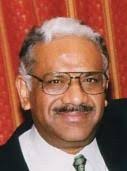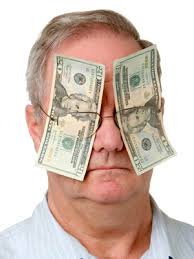




The criticism against the PPP and PML (N) has very little to do with any constructive assessment, as such. On the contrary, quite like in the 1990s, some high profile newspaper reporters (and now also TV anchors) have yet again suddenly managed to get hold of ‘vital facts and figures on corruption,’ that have otherwise eluded even the most astute investigative reporters. Exactly where these facts and figures suddenly appear from, I’ll leave that to your own discretion. But the truth is these ‘reports’ read and sound more like anti-democracy indoctrination speeches than a crusading case of journalism, really. Have some columnists and TV personalities gotten down to once again preparing the ground for democracy’s disgrace? The alarming phenomenon is, that this time around these ‘forces’ (with their own tainted pasts) can now be seen on popular TV channels as well; meaning that this time the mantra against the ‘corrupt’ abomination called democracy is set to influence a much larger number of people.
Democrats, beware!
Ever since Field Martial Ayub Khan toppled a blundering conglomerate of civil servants and politicians in a military coup in 1958, as a culture, Pakistan was moulded into a desperate group of people to whom democracy was akin to corruption and chaos.
But compared to the 1950s, corruption scaled unprecedented heights during the Ayub dictatorship, and it was this corruption that generated a fresh interest in democracy among a new generation of politicians and youth in the 1960s.
Between 1967 and 1970, a movement led by progressive students and fiery politicians opened a new window of opportunity for democracy.
However, with the tragic dismemberment of the country in 1971 that saw East Pakistan become Bangladesh, this gave various politico-religious parties and conservative ‘pro-establishment’ politicians and intellectuals the fodder they needed to at once term the 1971 debacle as a demonic consequence of democracy.
In the 1970s this meant two things: first, that in spite of the exploitative ways the establishment had treated its Eastern wing, Bengalis were termed as ‘traitors.’ Secondly, some rightwing journalists and parties like the Jamaat-i-Islami started to claim that it was Bhutto who was responsible for the East Pakistan debacle.
Though a much loved leader, as Prime Minister, Bhutto awkwardly bounced between populist democracy and autocracy, in a way preparing his own downfall at the hands of forces that had been rejected by the electorate in the 1970 elections
Some suggest that Bhutto’s erratic behaviour in this context was mostly due to a concerted smear campaign against his personality (by the ‘rightwing press’) and against democracy itself that was said to be ‘undermining Islam’s place in Pakistan.’
Not surprisingly, during the 1977 elections, the anti-Bhutto coalition, the Pakistan National Alliance’s slogan became, ‘Nizam-i-Mustafa’ (a system based on Shariah).
Though Bhutto blundered by doctoring an election he could have won on his own, this gave his opponents the chance to pounce upon him like never before. But some opposition leaders panicked when Bhutto rallies once again started attracting large numbers of people.
A number of respected historians have claimed that the Alliance’s leadership then ‘requested’ the military (under General Ziaul Haq), to intervene, and which it gladly did.
Thus, in the next eleven years, state-owned media, politico-religious parties, anti-Bhutto politicians and educationists were used by the Zia dictatorship to engrave in the people’s minds the supposed incompatibility between Pakistan and democracy.
In the chaotic midst of rampant corruption, ethnic and sectarian violence, and the imposition of brutal laws (in the name of Islam) by the dictatorship, it continued to accuse democracy as a system that produced ‘monsters’ like Bhutto and divorced Islam from the political and social fabric of Pakistan.
The anti-democracy mantra and mindset cultivated during the dictatorship was now so well entrenched that even the revival of democracy after Zia’s death in 1988 failed to exorcise it.
Despite Benazir Bhutto and Nawaz Sharif’s own obvious shortcomings, it would not be far-fetched to suggest that at every turn during the 1990s, those associated with various intelligence agencies and politico-religious parties used a large section of the popular press to continue portraying democracy and democrats as abominations ‘planted by anti-Pakistan forces’ to ‘compromise Pakistan’s strategic victory in Afghanistan,’ and ‘work against Pakistan’s Islamic credentials’.
Another thing that was clearly exaggerated was the way democracy bred corruption because during the 1990s politicians weren’t any more or less corrupt than what they had been — along with a number of military men, bankers and businessmen — during the Zia dictatorship.
Today, some two years after the dramatic revival of democracy after the PPP, PML(N) and the lawyers’ movement successfully dislodged the Musharraf dictatorship, we are once again hearing the same mantra of ‘corruption’ and ‘incompetence’ coming from sections of the popular press and the private electronic media.
The criticism against the PPP and PML (N) has very little to do with any constructive assessment, as such. On the contrary, quite like in the 1990s, some high profile newspaper reporters (and now also TV anchors) have yet again suddenly managed to get hold of ‘vital facts and figures on corruption,’ that have otherwise eluded even the most astute investigative reporters. Exactly where these facts and figures suddenly appear from, I’ll leave that to your own discretion. But the truth is these ‘reports’ read and sound more like anti-democracy indoctrination speeches than a crusading case of journalism, really.
Have some columnists and TV personalities gotten down to once again preparing the ground for democracy’s disgrace?
The alarming phenomenon is, that this time around these ‘forces’ (with their own tainted pasts) can now be seen on popular TV channels as well; meaning that this time the mantra against the ‘corrupt’ abomination called democracy is set to influence a much larger number of people.
No wonder then, according to a recent British Council survey, a very small percentage of young Pakistanis have any faith in democracy; but up to 60 per cent of these young men and women trust the Army and, more alarmingly, up to 50 per cent exhibit faith in the madressahs — the very institutions that have been behind some of the messiest political, economic and cultural blunders that have continued to haunt Pakistan till this day. Source





















1 comment:
Very helpful information specifically the final phase. I handle such info a lot. I used to be seeking this certain info for a long time.
토토사이트
바카라
Post a Comment
1. You are very welcome to comment, more so if you do not agree with the opinion expressed through this post.
2. If you wish to hide your identity, post with a pseudonym but don't select the 'anonymous' option.
3. Copying the text of your comment may save you the trouble of re-writing if there is an error in posting.